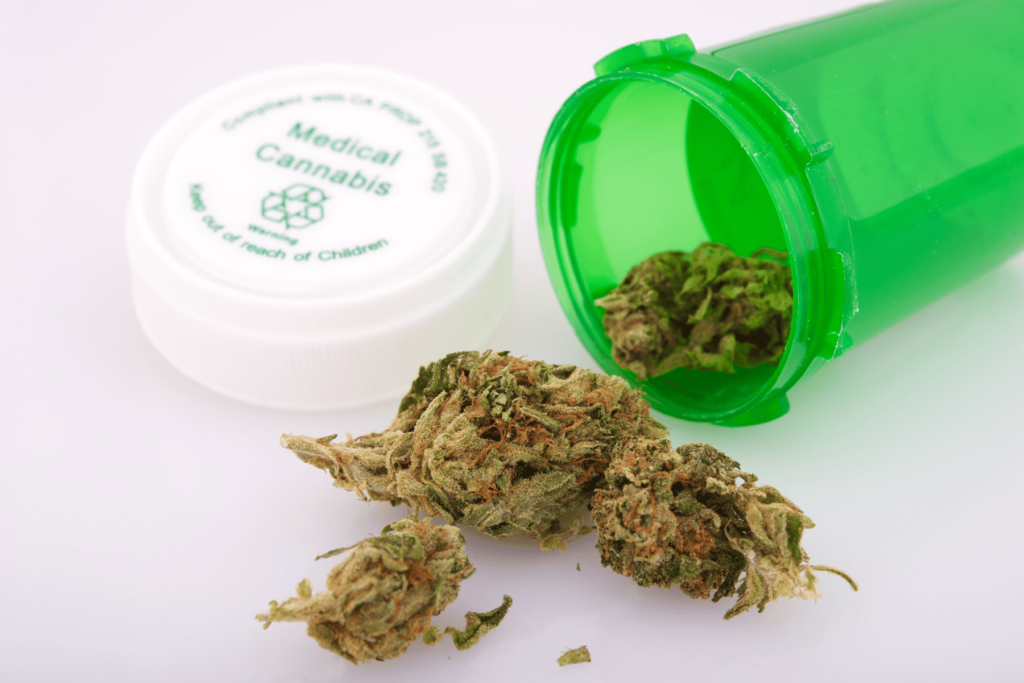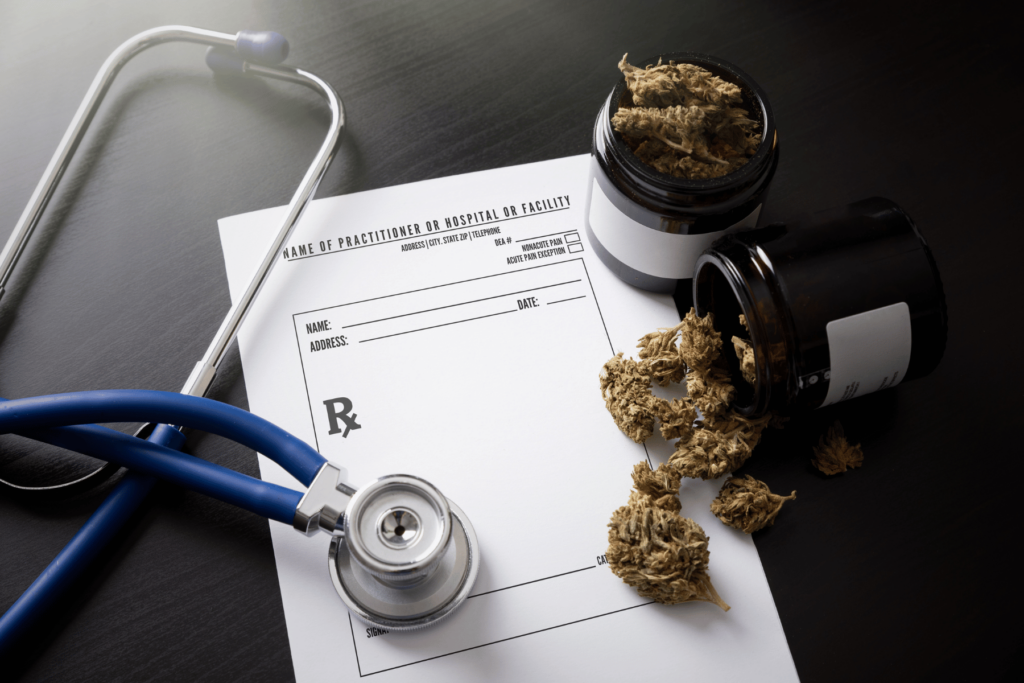We’re hearing more and more about the medical benefits of marijuana. Because of that, some states in the USA have legalized its use for medicinal purposes.
The state I live in, Florida, embraced medical marijuana, offering relief to patients suffering from various qualifying conditions.
Many potential patients may be wondering what those qualifying conditions are and how much it’s going to cost them. Are you a qualified patient with a qualifying condition? Let’s find out.
Understanding the Legal Landscape
Before I get into the costs, it’s important to understand the legal framework surrounding medical marijuana in Florida.
In 2016, Florida voters approved Amendment 2, which expanded the state’s existing medical marijuana program. For more on this story, scroll down.
This expansion allowed for the legal use of medical marijuana by people with debilitating medical conditions, as certified by a qualified physician.
Here is a list of qualified physicians.

Qualifying Conditions
To be eligible for a medical marijuana card in Florida, individuals must have a qualifying medical condition, which includes but is not limited to:
- Cancer
- Epilepsy
- Glaucoma
- HIV/AIDS
- Multiple Sclerosis
- Parkinson’s Disease
- Post-Traumatic Stress Disorder (PTSD)
- Chronic Pain (related to qualifying conditions)
- Terminal Conditions
The list of qualifying conditions changes as updates in state regulations are made. You can stay up to date by visiting the Florida Department of Health (DOH) or your doctor.
For more about the Florida state law, rules, and regulations in Florida, click here.
The Application Process
The process of obtaining a medical card in Florida begins with a visit to a state-registered physician. This doctor must be certified by the DOH to recommend medical marijuana as a treatment option.
The first step is to find a licensed medical marijuana doctor here.
During the appointment, the physician will evaluate the patient’s medical history, symptoms, and chronic condition to determine if the medical use of marijuana is an appropriate form of treatment.
If the physician determines that the patient qualifies for a medical marijuana card, they will issue a recommendation to the Florida Department of Health’s Medical Marijuana Use Registry (MMUR). This registry is a crucial component of the application process, and patients cannot proceed without a valid entry in the MMUR.

Cost Breakdown
Physician Consultation
The cost of an initial evaluation by a certified physician typically ranges from $100 to $200.
State Application Fee
Once the physician enters the patient’s information into the MMUR, the patient can then apply for the medical card online through the DOH’s Office of Medical Marijuana Use website. The state application fee is $75, and it must be paid online during the application process.
Processing Time
The processing time for applications can take up to 30 days. During this approval process, the DOH will review the application, and if it’s approved, they will issue the patient’s Florida medical marijuana card via email. Then, you can visit a state-licensed dispensary.
Annual Renewal
Medical cards in Florida are valid for one year from the date of approval. Patients must undergo a renewal process each year, which involves a new consultation with a certified physician and a renewal fee similar to the initial application fee.
If there are no additional costs, you can expect to pay less than $300 to get your medical marijuana card in the state of Florida. Whether or not you have health insurance and what your policy is may help to bring these costs down as well.

Florida Resident vs Seasonal Resident
Access to a medical marijuana card in Florida can differ between a Florida resident and a seasonal resident, also known as a snowbird or part-time resident.
Residency Requirements
Florida Resident
To qualify as a Florida resident, an individual must have established and maintained legal residence in the state. This includes having a valid Florida driver’s license or identification card and living in the state for at least 31 consecutive days each calendar year.
Seasonal Resident
A seasonal resident, on the other hand, is someone who lives in Florida for a portion of the year but does not meet the criteria to be considered a full-time resident. Typically, snowbirds are individuals who live in Florida during the winter months to escape colder climates in their home states or countries.
Proof of Residency
Florida Resident
Permanent residents must provide appropriate documentation, such as a valid Florida driver’s license or ID card, utility bills, or lease agreements, to prove their residency when applying for a medical marijuana card.
Seasonal Resident
Seasonal residents may face challenges in providing traditional proof of residency since they may not have utility bills or long-term lease agreements.
However, Florida regulations do allow seasonal residents to use certain forms of documentation to establish their residency. This may include a combination of utility bills, bank statements, and a sworn statement affirming their part-time residency status.
Length of Medical Marijuana Card Validity
Florida Resident
A medical marijuana card issued to a Florida resident is typically valid for one year from the date of approval. After this period, the resident must renew the card by undergoing another evaluation by a qualified physician and submitting a renewal application.
Seasonal Resident
The medical marijuana card for a seasonal resident is also valid for one year from the date of approval. However, since seasonal residents may not be in Florida for the entire year, they may need to plan their medical evaluations and card renewals around their time in the state.
Physician Consultations
Both Florida residents and seasonal residents must schedule appointments with qualified physicians registered with the Florida Department of Health’s Medical Marijuana Use Registry (MMUR) to receive a medical evaluation and a recommendation for medical marijuana.
The process for Florida residents and seasonal residents remains the same in this regard.
State Application Process
The application process for a medical marijuana card is the same for both Florida residents and seasonal residents. Once the physician enters the patient’s information into the MMUR and issues a recommendation, the patient can apply for the medical marijuana card online through the DOH’s Office of Medical Marijuana Use website.
The key difference between Florida residents and seasonal lies in the residency requirements and the documentation needed to establish residency status.
Seasonal residents may face additional challenges in providing proof of residency, but they are still eligible to receive a medical marijuana card in Florida if they meet the necessary criteria.

Marijuana, also known as cannabis, has been controversial for many years. As attitudes towards marijuana evolve, scientific evidence supporting the use of medical marijuana is gaining recognition worldwide.
Pain Management
One of the most well-known and researched benefits of medical marijuana lies in its potential to alleviate chronic pain. The plant contains cannabinoids, such as THC and CBD, which interact with the body’s endocannabinoid system, responsible for regulating pain perception.
Studies have shown that medical marijuana can be effective in easing pain associated with conditions like arthritis, multiple sclerosis, and cancer, often providing a safer alternative to opioid-based pain medications.
Nausea and Vomiting Relief
Medical marijuana has demonstrated promise in combating nausea and vomiting, particularly in patients undergoing chemotherapy or suffering from gastrointestinal disorders.
The cannabinoids in marijuana, especially THC, activate specific receptors in the brain and gut, helping to suppress these distressing symptoms and improve the quality of life for patients.
Neurological Disorders
Marijuana’s potential benefits extend to neurological disorders, including epilepsy, Parkinson’s disease, and multiple sclerosis.
Research suggests that certain cannabinoids may have anticonvulsant properties, reducing the frequency and severity of seizures in epileptic patients. Additionally, medical marijuana has shown promise in easing muscle spasms and improving motor function in individuals with Parkinson’s disease and multiple sclerosis.
Mental Health Support
Medical marijuana has shown potential in addressing various mental health conditions. CBD, a non-psychoactive cannabinoid found in marijuana, has been of particular interest due to its anxiolytic and antidepressant properties.
Some studies suggest that CBD may help reduce anxiety and improve mood, making it a possible adjunct therapy for conditions like generalized anxiety disorder and depression.
Sleep Disorders
Medical marijuana, especially strains high in CBD, may promote better sleep by relaxing the body and mind. Some individuals have reported improved sleep patterns and reduced sleep disturbances with the use of medical marijuana.
Glaucoma Management
Glaucoma, a condition characterized by increased pressure within the eye, can lead to optic nerve damage and vision loss. The use of cannabis has been shown to lower intraocular pressure, potentially slowing the progression of glaucoma and preserving vision.
Appetite Stimulation
For patients undergoing cancer treatment or dealing with eating disorders, loss of appetite can be a significant concern.
Medical marijuana, particularly THC-dominant strains, has been found to stimulate appetite, helping patients regain their interest in food and maintain adequate nutrition.
As the scientific community continues to explore the therapeutic properties of medical marijuana, the evidence supporting its medicinal benefits continues to grow. As research advances, we can look forward to unlocking even more medical marvels hidden within this ancient plant.

The quest to legalize medical marijuana in Florida has been a long and hard-fought journey.
The voices of patients and advocates seeking alternative treatment options for debilitating medical conditions fought for medical marijuana legalization in the Sunshine State.
The Road to Legalization
The groundwork for medical marijuana legalization in Florida was laid in 2014 when United for Care, a grassroots campaign led by attorney John Morgan, spearheaded a constitutional amendment called Amendment 2.
This initiative aimed to expand access to medical marijuana for individuals with debilitating medical conditions. Although the measure gained significant public support, it fell just shy of the required 60% approval in the 2014 elections.
Despite the setback, United for Care regrouped, reevaluated its strategy, and launched a renewed effort to educate the public about the potential medical benefits of cannabis. The campaign focused on
- reaching a broader audience,
- sharing stories of patients who found relief and
- improved quality of life through medical marijuana.
A Second Chance: Amendment 2 in 2016
In 2016, the efforts of United for Care paid off as they secured a place on the ballot again, this time as Amendment 2. The campaign gained momentum as it garnered support from a wide spectrum of the population, including
- patients,
- physicians,
- veterans, and
- caregivers.
On November 8, 2016, the tireless efforts of these individuals culminated in victory. Amendment 2 received an overwhelming 71% approval, exceeding the required threshold and paving the way for medical marijuana to become a legal treatment option for eligible patients in Florida.
Legalization Implementation and Challenges
The passing of Amendment 2 marked a historic moment for Florida. The state had to establish a regulatory framework to govern the cultivation, distribution, and use of medical marijuana.
The Florida Legislature worked to craft and pass the necessary legislation, known as the Florida Medical Marijuana Legalization Initiative (SB 8-A), to implement the amendment effectively.
However, the implementation process faced challenges, including debates over licensing, dispensary locations, and the qualifications for physicians recommending medical marijuana.

Expanding the Program
In the years that followed legalization, Florida’s medical marijuana program experienced gradual expansion. The Florida Department of Health (DOH) added more qualifying medical conditions, allowing a broader range of patients to access medical marijuana treatment.
Additionally, the number of licensed dispensaries increased to improve patient access statewide.
The Impact on Patients
Individuals suffering from conditions such as epilepsy, chronic pain, cancer, and PTSD found new hope and relief through medical cannabis. Patients reported improved quality of life, reduced pain and symptoms, and decreased reliance on conventional medications, such as opioids.
The fight to legalize medical marijuana in Florida was not just about legislation. It was a fight for compassion, dignity, and the right for medical marijuana patients to receive alternative treatment options who struggle with debilitating conditions.
